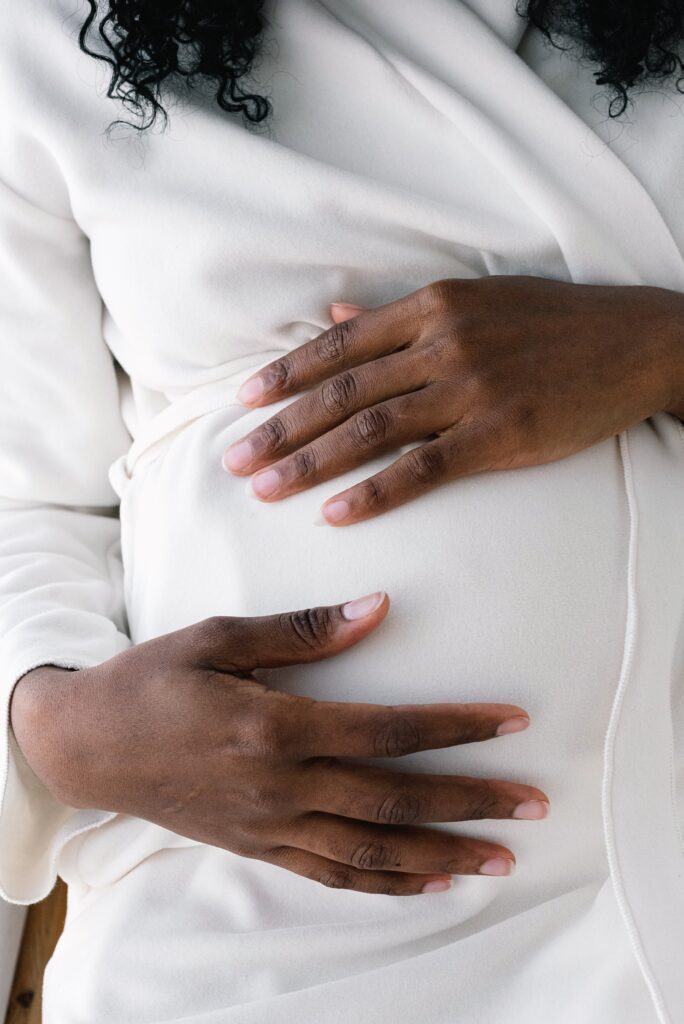The U.S. maternal mortality rate was 23.8 deaths per 100,000 live births as of 2020, an increase from 20.1 in 2019. And the maternal death rate more than doubles for non-Hispanic Black women, with “55.3 deaths per 100,000 live births, 2.9 times the rate for non-Hispanic White women,” according to the Centers for Disease Control and Prevention (CDC).
With the overturn of Roe v. Wade, experts warn those numbers can do only one thing: increase.
Inequity drives higher rates of maternal mortality, pregnancy complications
This concern is not unfounded. Non-Hispanic Black child-bearing capable Americans, unfortunately, suffer some of the worst access to maternal healthcare in the nation as a result of a variety of historic and socio-economic issues. Black women are paid, on average, 63 cents to the dollar of non-Hispanic white men, and only make an average of $36,227 per year. Additionally, Black mothers face a higher rate of single motherhood, explains Statista: “In 2020, there were about 4.25 million Black families in the United States with a single mother. This is an increase from 1990 levels, when there were about 3.4 million Black families with a single mother.”
These inequities mean access to care is already a major challenge for Black mothers – and one that has gotten worse over time.
Black mothers not only face higher mortality rates, but also a greater risk of pregnancy complications. According to the National Partnership for Women and Families:
- “Black women are three times more likely to have fibroids (benign tumors that grow in the uterus and can cause postpartum hemorrhaging) than white women, and the fibroids occur at younger ages and grow more quickly for Black women.”
- “Black women display signs of preeclampsia earlier in pregnancy than white women. This condition, which involves high blood pressure during pregnancy, can lead to severe complications including death if improperly treated.”
- “Black women experience physical ‘weathering,’ meaning their bodies age faster than white women’s due to exposure to chronic stress linked to socioeconomic disadvantage and discrimination over the life course, thus making pregnancy riskier at an earlier age.”
Meanwhile, Black-serving hospitals have lower measured quality of care with “higher rates of maternal complications than other hospitals,” and perform “worse on 12 of 15 birth outcomes, including elective deliveries, non-elective cesarean births and maternal mortality.”
Denial of care could make maternal mortality worse
Now, threats of denial of care following the Dobbs v. Jackson verdict are likely to make pregnancy even less safe for Black Americans.
A Duke University study projected that if abortions were banned outright in the U.S., there would be a 7% increase in maternal mortality in the first year alone, with a 21% increase in the subsequent years. However, “Non-Hispanic Black people would experience the greatest increase in deaths (a 33% increase in subsequent years).”
Since abortion rights are still upheld (either partially or fully) in about half of the states, those increases can be reduced somewhat. Still, the risks are clear: without safe access to abortive procedures, more child-bearing Americans are being denied necessary, safe care, which is resulting in disturbing health outcomes – and if we look at the data, we see these outcomes are likely to be exacerbated within disenfranchised communities.
Some states are already taking action to restrict access to drugs and care. As we’ve reported, drugs like mifepristone, methotrexate, and misoprostol are already coming under fire because of their use in abortive procedures, despite the fact that they’re also used to treat a variety of autoimmune diseases. In addition, there have been reports of miscarriage-management care being denied altogether for fear of hospitals facing legal repercussions, despite the fact that miscarriages can be deadly if not treated.
And there is clear evidence that abortive care reduces the death rate among Black mothers in particular. After Roe v. Wade was decided in 1973, “maternal mortality among women of color in the U.S. dropped by more than 30%,” Time explained. Similarly, a Georgia State University study questioned “whether the legalization of abortion over 1969-1973 explains a portion of this maternal mortality decline,” due to abortion-related mortality declining by 97% and maternal mortality falling by 86% from 1959 to 1980. The study concluded that “legal abortion substantially improved maternal health for disadvantaged groups.”
Year after year, studies have found that those impacted most by medical restrictions and lack of access to care are minority, impoverished, and disabled groups. The overturning of Roe v. Wade is likely to be no different. The threat of an increase in maternal mortality among Black mothers is sobering.




